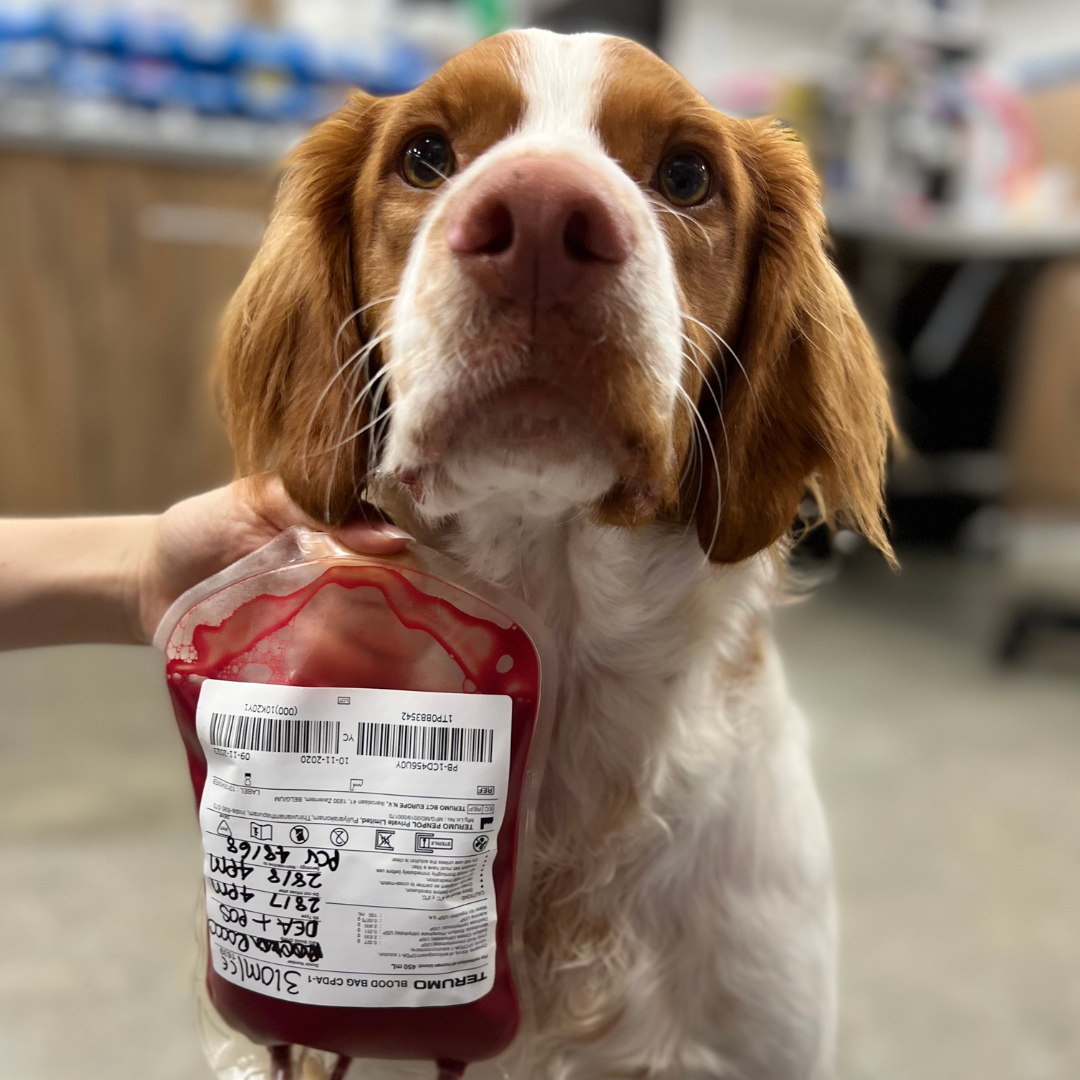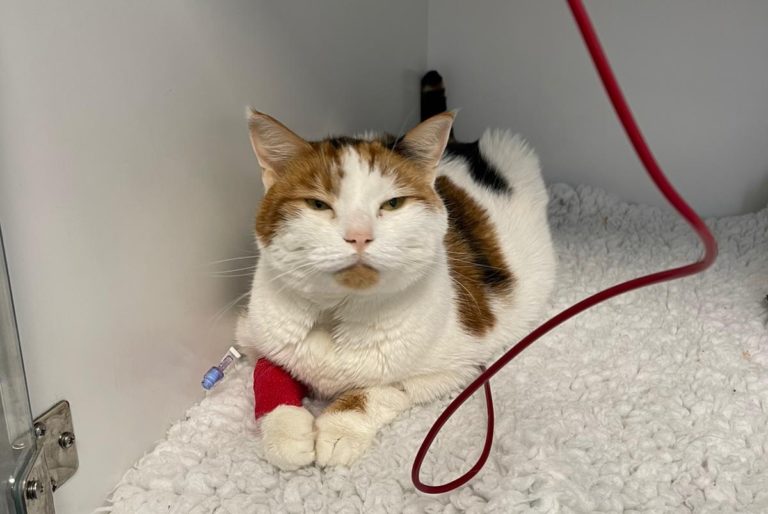While many of us may be registered blood donors and be quite accustomed to popping into our local blood bank every 56 days to donate, it may come as a surprise to pet parents that dogs, cats and even other animals like birds and exotics can also donate blood. In fact, the very first recorded successful blood transfusion wasn’t human-to-human, but dog-to-dog!


Why Should I Consider My Pet For Blood Donation?
Animals, like people, may be in need of a blood transfusion for various reasons:
- Bleeding, for example due to a road traffic accident, but also surgery or a clotting problem.
- Failure to make enough red blood cells as a result of a bone marrow problem.
- Destruction of the red blood cells.
- Snake or spider bites and rat bait poisonings.
Your pet’s blood could save up to 3 lives through transfusion of whole blood, red cells or plasma.
Do Animals Have Blood Types?
Yes. As with humans, animals have blood types/groups too – 7 different types in dogs and 4 in cats. Dogs with DEA 1.1 negative blood are considered universal donors. About 60% of dogs are DEA 1.1 negative, and certain breeds are more likely to be universal donors, including German Shepherds, Irish Wolfhounds, Pitbulls, Dobermans and Boxers. With cats, things are a bit more complex and cross-matching should ideally be done in a laboratory prior to transfusion, to test for compatibility between donor and recipient.
Dog blood can be stored for later use, but cat blood unfortunately cannot. Unlike humans, dogs have a mobile reservoir of red blood cells in their spleen and can replace 1/3 of the donated blood immediately. They will regenerate the rest of the blood cells within a couple of days. Dogs can safely give blood every 8 weeks, although every 3 months is ideal; cat donors need to be available at the time of transfusion to donate.
What Are The Criteria For My Pet To Be A Donor?
Pets who can potentially donate life-saving blood should
- Be between 1 and 8 years of age
- Have a calm temperament
- Be desexed
- Be up to date with vaccinations, tick and flea and heartworm treatments and deworming.
- Be of healthy weight and body condition – min. 4.5kg for cats and 20kg for dogs.
- Never have received a blood transfusion.
- Not be fed a raw diet.
- Never have travelled outside Australia.
- Be healthy – various clinical tests will be conducted beforehand to ensure that no underlying medical conditions disqualify the pet from becoming a donor.
What Can I Expect When My Pet Donates Blood?
- A thorough general examination and a blood test will be performed in order to obtain your pet’s complete blood profile, determine his blood type and make sure that he’s not a carrier of certain blood-transmitted infections (heartworm, tick-borne diseases, feline AIDS, feline leukaemia, etc.).
- Depending on his temperament, a sedative may be administered.
- A small area will be shaved on your animal’s neck to access the jugular vein.
- For the donation, approximately 450 ml of blood will be taken from dogs, and 50 ml from cats.
- Your pet will receive a meal as soon as the sedative’s effect wears off, to help him recover more quickly.
- Rest, under clinical supervision, is imperative until he is fully recovered and ready to go home.


Responsible Consent and Utilisation
Because animals cannot give consent to be blood donors, as we can, they rely on us as their caregivers to consider their well-being in every aspect of the decision to have them give blood.
Blood and blood products are precious resources. Clinicians therefore have a responsibility to use the blood carefully, and not for cases with a very poor prognosis which are unlikely to survive or are likely to be imminently euthanased. Additionally, transfusion carries some risks both to the donor and to the recipient and should not be given without evidence of a clear benefit to the patient.
Our local referral hospital, Veterinary Specialists of Sydney runs a pet blood donor programme, and they would be thrilled to help you make an informed decision if you think your animal companion may be a good candidate. Wednesdays are dedicated to the blood donor programme, and meet ‘n’ greets are welcome – why not pop in and see what it’s all about? Visit VSOS Blood Bank Program website for more information.
